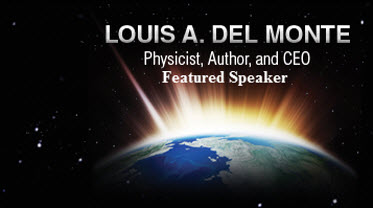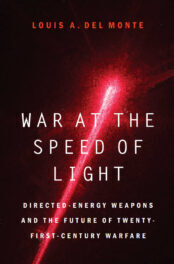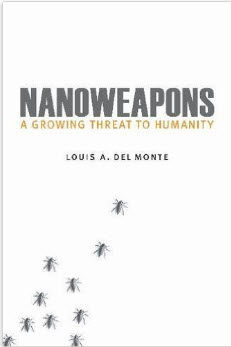At the begging of the Twentieth Century, almost every scientist believed the universe was eternal. That is to say, the universe always was and always will be—it is static. In the context of an eternal universe, questions about a beginning or an ending are meaningless. By definition, an eternal universe has no beginning, and it will have no ending. This is what they taught our grandparents as schoolchildren. Overall, the eternal universe found acceptance in both science and religion. Science proclaimed that the universe simply existed, with no evidence to the contrary. Religious leaders simply proclaimed God made the universe, which seems to imply the universe had a beginning. However, since science had no evidence to the contrary, science and religion did not butt heads over this. At the turn of the Twentieth Century, science and religion appeared content with their assertions of the universe. Poetically, you might say all was well in heaven and on Earth.
A little over eighty years ago, our cosmic bubble of an eternal universe was shattered. In 1929, Edwin Hubble, using the 100-inch Hooker telescope at the Mount Wilson Observatory, discovered that extremely distant galaxies are moving away from us. Indeed, he discovered the farther away the galaxy, the higher the apparent velocity it is moving away from us. Therefore, a galaxy twice as far from us is moving away at twice the speed of a galaxy half the distance from us. Hubble noted that the universe was expanding in all directions. This was a profound discovery that caught the greatest scientific minds of the time, including Einstein, off guard. Prior to Hubble’s discovery, the prevalent theory held by the scientific community was that the universe was in a steady state, not expanding or contracting. Even though, the evidence was mounting before Hubble conclusively proved the universe was expanding, most scientists held strongly to their paradigm of a steady-state universe.
Surprisingly, Hubble was not the first to discover the universe was expanding. In 1912, Vesto Slipher measured the first Doppler shift (the length of a light wave) of spiral galaxies, and discovered that almost all spiral galaxies were receding from Earth. Unfortunately, not much attention was paid to Slipher’s findings. Slipher himself did not understand the implications of his discovery. In addition, telescopes in 1912 were relatively poor quality, and the nature of what he was measuring was not clearly understood as spiral galaxies. In fact, the term that was used to describe spiral galaxies in 1912 was “spiral nebula” (an indistinct bright patch).
Einstein’s equations of general relativity also predicted the universe was expanding. However, Einstein was convinced that this prediction was wrong and modified the equations by adding the “cosmological constant.” With this newly added mathematical expression, the equations of general relativity predicted a static universe. Later, though, as the evidence that the universe was expanding become incontrovertible, Einstein labeled his “cosmological constant” his greatest blunder. in fact, Starting with Hubble’s discovery of an expanding universe in 1929, within thirty-five years, most of the scientific community did a complete reversal, turning their backs on a static universe and now embracing an expanding universe.
As scientists began to think about an expanding universe, they reasoned that eventually gravity would play into the equation, halt the expansion, and even reverse it. In other words, up to 2008, mainstream science believed that the expansion of the universe would eventually be slowed by gravity, then halted, and gravity would pull everything back together in what science termed a “Big Crunch.” However, when the expansion of the universe was measured in 1998, by Saul Perlmutter, Brian P. Schmidt, and Adam G. Riess, a startling discovery was made. The expansion was not slowing down. It was accelerating. Gravity did not appear to be playing a prominent role. In fact, a new and unknown force, termed “dark energy,” seemed to be in charge. This new force, dark energy, is still a mystery.
You may wonder at this point, what this all have to do with how the universe will end? Based on all known data, the accelerated expansion of the universe implies that eventually all galaxies will move away from us to the point they are beyond our cosmological horizon. We will no longer be able to see them. The Milky Way galaxy, the galaxy that is home to our planet Earth, will be completely alone. Eventually, all stars in the Milky Way galaxy, including our Sun, will exhaust their fuel and burn out. The Earth, itself, will be long gone by by the time the galaxy grows completely dim. Our Sun will eventually burn out in approximately five billion years. How long will it take for the Milky Way galaxy to to simply be reduced to cold remnants of rubble and dust? No one really knows. Most scientists agree it will take many billions of years, but no one knows the exact number of billions. Some theories calculate the end of the universe, but they hold little sway in mainstream science. All we know is that the universe is 13.8 billion years old, which suggests change on a cosmological scale moves slowly. The end is likely many billions of years in the future, but there is little doubt the universe will end and any remnants material, without stars to provide warmth, will be close or equal to absolute zero temperature. This may all sound like a grade B disaster movie. However, unlike many grade B disaster movies, this is real and doe not have a happy ending.












Fr. Georges LeMaitre should be mentioned in any discussion of the “Big Bang” !
From the website: “Monsignor Georges Lemaître was a Belgian Roman Catholic priest, physicist and astronomer. He is usually credited with the first definitive formulation of the idea of an expanding universe and what was to become known as the Big Bang theory of the origin of the universe, which Lemaître himself called his “hypothesis of the primeval atom” or the “Cosmic Egg”.” There are many websites that explain his contribution.
Thank you for your comment. I am well aware of Fr. Georges LeMaitre’s contribution to the big bang theory. You can find it in some of my other posts. I totally agree he played a critical role in developing the big bang theory. This article deals with another cosmic phenomenon, the accelerated expansion of the universe, which Fr. LeMaitre played no role. This is in no way to detract from the critical role he played in developed what is now considered the most widely accepted theory of the evolution of the universe, the big bang.